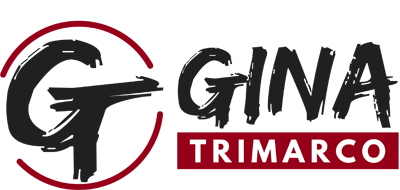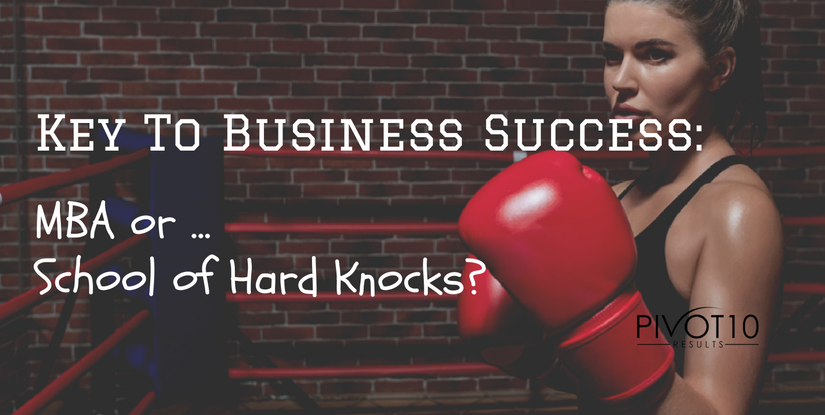By Gina Trimarco, Chief Results Officer
Imagine a flea market setting where the following conversation transpires:
Buyer: How much for the toaster?
Vendor: Five dollars
Buyer: I’ll give you three.
Vendor: It’s five.
Buyer: Four.
Vendor: Five.
Buyer: [mumbles under his breath and walks away disgusted]
Ten minutes later the buyer comes back.
Buyer: I’ll take that toaster for five.
Vendor: It’s ten.
Buyer: [stomps off]
Vendor’s Child: [mortified]: But dad, he was willing to give you five dollars. Why didn’t you take it?
Vendor: Supply and demand. It’s worth more now. And that’s what he gets for trying to buy it from another vendor.
This is a true interaction that happened sometime in the 70’s. I was the vendor’s mortified 10-year-old child.
Every weekend for years of my childhood my dad forced my brother and I to work in a flea market with him. I hated it and I hated him for it (at the time). While most kids were participating in sports-related tournaments, we were dragged into a dungeon-like flea market filled with a slew of personalities and walks of life.
I was reminded of this vivid memory, I often share in keynote addresses, when asked to give a talk about why NOT to get an MBA.
My talk title: Business School vs School of Hard Knocks: Know What You Really Want To Do BEFORE opting for an MBA
In preparing for this talk I had to reveal my reasons for why I did not pursue an MBA and instead relied on my life and business experiences to drive my entrepreneurial spirit.
In this preparation process I was reminded of how my education at this fine institution – the School of Hard Knocks – was truly the best education I could receive to be successful in both my career and business start-ups.
I mean seriously … who gets real life modeling of supply and demand at the age of 10? So much more came out of the experience:
I learned how to show up on time (regardless of the fact my father drove me to work).
I learned how to talk to people … to say “How can I help you?” and “Thank you”.
I learned how to negotiate.
And most importantly I learned how to stand up for myself when buyers would question my capabilities as a seller.
My father didn’t just sell toasters, Member’s Only jackets and Gloria Vanderbilt jeans. He was a self-taught locksmith; took an at-home class and housed all the machines and tools in our basement.
My brother and I were not only taught how to sell. We were required to have multiple skills. Our dad taught us how to “cut keys”.
Imagine the looks on the faces of people who wanted a key duplicated when my eight-year-old brother or I confidently took their keys and made copies.
Often, we would hear, “Uh, what if this doesn’t work?”
And we were trained to say, “That can happen sometimes. Bring it back and we’ll make you a new one, no charge.”
My father did such a great job as a mentor, boss and trainer that I ultimately quit for a better “job”. A furniture vendor across the aisle offered me a position to be the sole salesperson for living room furniture. He paid more, due to my great 10-year-old negotiating skills, and the working conditions were better. Who wouldn’t want to sit in comfy, make-shift living room all day? Of course, I had to negotiate with my dad to continue driving me to work.
Little did I know that my experience working in a flea market would lay the foundation to get me through college on my own dime and as a serial entrepreneur helping other businesses.
There have been days when I wondered about seeking an MBA, yet I still chuckle about friends who would call me for real world advice – while they were in business school! And in some cases, that degree may have accelerated their progress (although I noticed they were STILL calling me for advice!)
Still, I would never change a thing about my degree from The School Of Hard Knocks. It was far more valuable than my undergraduate degree from DePaul University. This is not to badmouth advanced degrees. There are fields in which they are necessary for advancement, such as academia, and in the financial and medical worlds. And I, personally, would love to go back to school for additional education in psychology because the study of human behavior is fascinating to me.
Whether you have an MBA or not, I think it’s important to value your real-life experiences as saleable skills. Things I learned along the way were how to:
- Connect and communicate with people face-to-face
- Be authentic and not apologetic for who I am
- Negotiate and compromise
- Walk away from bad deals and situations
- Recognize bad partnerships quickly
- Take risks and be fearless
- Have a voice and share my point of view
- Have confidence in myself even when others didn’t believe in my capabilities
- Be loyal to those who are loyal to me
- Not question authority while still pushing the envelope
- Show up on time and when I say I will
- Have grit and be a little rough around the edges
We all have more skills than we realize based on life experience. Call it School of Hard Knocks or Street Smarts, but whatever you call these experiences, chances are you’re not getting them in business school.
Bet you’ll never look at a toaster or Member’s Only jacket the same way after reading this! Okay, I really hope you don’t actually see a Member’s Only jacket anytime soon.
– Gina Trimarco
When you pivot, the team keeps playing!
P.S. Need some help drawing out your own School Of Hard Knocks skills to scale your business or be a stronger leader? Let’s talk. Call me at 843-597-6393.
P.P.S. Need some inspiration from modern leaders who know how to shift their cultures to success? Listen to The Pivotal Leader podcast, now on iTunes, Stitcher and Google Play Store.
ABOUT THE POST AUTHOR
Gina Trimarco, Chief Results Officer, knows how to pivot to profits from problems and find joy through the process. Her philosophy is that performance pays and people need to be trained to perform on the stage of business to achieve results.
pivot to profits from problems and find joy through the process. Her philosophy is that performance pays and people need to be trained to perform on the stage of business to achieve results.
Gina successfully pivoted from her entertainment company Carolina Improv Company to spinning off Pivot10 Results, a strategic training and consulting firm that helps business teams to quickly adapt their communications and engagement skills in leadership, customer and sales to achieve results by providing them experiential learning tools and strategies.




